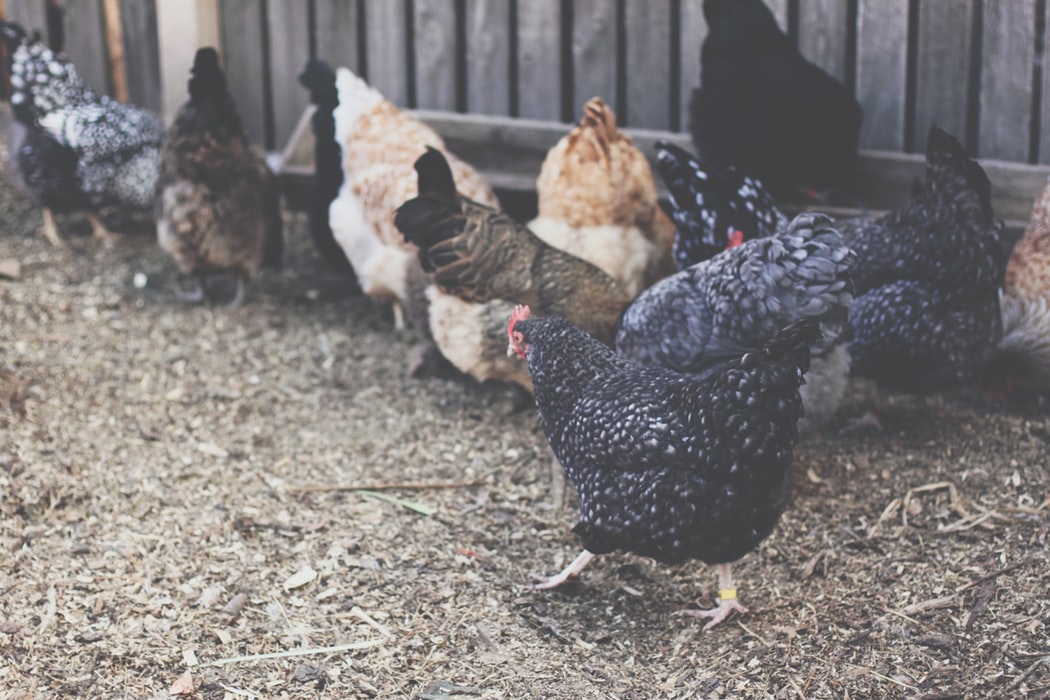If you are a newbie to keeping chickens, knowing how to persuade them to return to their coop come evening time can be a real challenge – especially if you’ve had no experience. Although you may have tried numerous times to force them into the coop, the secret to success is not to give up. Making sure your chickens are safely locked away in the evening time protects them from predators and any other dangers that may be present while running around the yard freely without supervision.
Chickens need to identify the coop as their home in order to retire there at the end of a long day, therefore, you’ll need to put in some work to reach this stage. What you may not realize, is that chickens can be trained as quickly as a dog, mainly because they’re creatures of habit and are known to stick to a rigid routine. A little bit of training can go a long way when it comes to getting your chickens to do as you please. With this in mind, here’s how you can train your chickens to return to their coop:
- Prepare your chicken coop
First and foremost, you need to be sure that the chicken coop you have built or purchased is well-prepared for your chickens. Even the most basic of coops should measure twenty-four square feet with plenty of places to perch.
As the coop will become your chickens’ new home, they need to feel safe and welcomed – if they aren’t comfortable, they simply won’t return here out of choice.
Make sure there is enough food and water inside and build extra perches if needs be to accommodate all of your chickens. If you’re raising your flock for the sole purpose of laying eggs, make sure there are enough boxes for each hen to lay.
Another factor that needs to be taken into consideration is the interior temperature. The average temperature should not drop below or exceed 70 degrees Fahrenheit. It’s important your chickens are neither too hot or too cold, or they may suffer health issues in the future. If you notice that the temperature is soaring above the recommended figure, you could install fans inside the coop or relocate it out of direct sunlight.
- Keep your chickens confined to the coop
Chickens can get very stressed out when being moved from one yard to another, therefore, making sure your young chickens are taught early on to stay confined to their coop would be the best course of action. Keep your chickens inside the coop for a week to establish the idea that this is now their home.
Once the week has passed, open the door and allow the chickens to walk around the yard without any interference. Follow the same routine every morning for several days. If you notice that the chickens aren’t willingly returning to the coop in the early evening, it means they haven’t yet adapted. If this is the case, you may need to confine the chickens to the coop for another week. Once they have learned to adjust to the coop, they should return to it naturally without prompts.
- Ring the dinner bell
Chickens don’t have the mental ability to interpret human sounds as a call, so it would be best to use one distinctive sound they become associated with. Using another object instead of your voice is also beneficial if you can’t always be there to call the chickens back in and you rely on others to do the job for you.
Try ringing a bell or banging on a saucepan as your call, which they will them learn to associate with food and hopefully, come running to see what’s for dinner. This method will only work if you always feed in the coop. If you usually feed outside the coop, it may be time to change tactics. Chickens are smart enough to realise they’re being stitched-up, so lay down the ground rules early, or they’re likely to disobey.
Follow this routine through every single day until your chickens come running at the instant sound of the command and straight into their coop without any prompts.
- Let them see you with treats
As you start to train your chickens with a distinct sound, make sure they can easily see the treats in your hand, so they know there’s something in it for them. Over a short period of time, chickens will cleverly learn to associate your actions with delicious treats and start to follow commands.
Re-training your chickens after a scare
Even the most well-trained chickens can refuse to go into their coop, but this is usually down to the fact that they have suffered a scare. You may be at a total loss on what to do next.
Be assured that scares aren’t too common, providing you’re keeping an eye on the coop regularly to check for any dangerous or concerns. Anxiety in chickens usually occurs if a predator has entered the coop, or the interior conditions are extremely poor.
Make sure you thoroughly check for any gaps in the coop where predators may have entered and secure it well while making sure that the coop is kept clean at all times. Aim to nail down the main cause that may have caused the chickens to vacate their coop and re-train them using the tips above.
We hope the above guide has helped you gain confidence in training your chickens back to their coop. If you would like any further information, please get in touch with a member of our team today who would be happy to provide further advice.


Being a first time bantam owner I have followed all the above and found that the adorable birds just LOVE their home and though are fortunate to have a field to access to roam – home is where their hearts are.